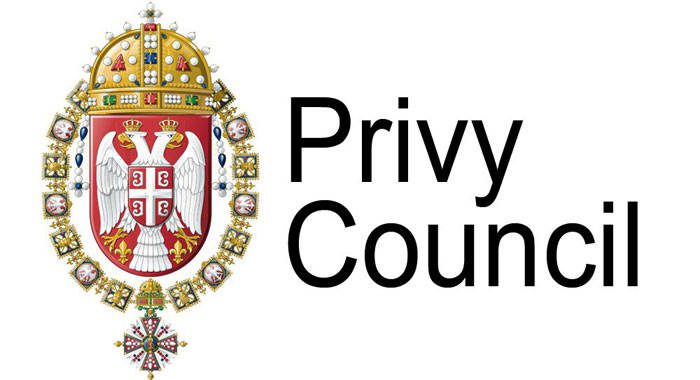By Oscar Ramjeet
Justice Adrian Saunders a born Vincentian presides as head of the Caribbean Court of Justice (CCJ) on Friday for the first time since he was appointed its president.
It is very unfortunate that St. Vincent and the Grenadines has not yet abolished appeals to the Privy Council and it still tied to the apron string of Britain.
A referendum seeking to rid the country from the Privy Council failed in 2009.
However, in my humble view, it is not necessary to have a referendum; it can be done if two-thirds of Members of Parliament agree to delink and the British Parliament agrees (which no doubt they will willingly do).
I sincerely hope that members of the opposition NDP will see the wisdom to support the measure if it is tabled in Parliament.
In fact, I requested Prime Minister Ralph Gonsalves to make another trial to remove the barrier so that the CCJ can be the final court, especially at this time since the president is one of your own.
It is very disappointing that the regional court was inaugurated 13 years ago and so far only four countries — Guyana, Barbados, Belize and Dominica — have accepted the CCJ as the final appellate court.
It is a shame that Jamaica and Trinidad and Tobago, which were in the forefront to establish the regional court more than 25 years ago, have not yet joined.
I should point out that Port of Spain is the headquarters of the court because of the important role the government of the twin island republic played at that time.
The current prime minister, Keith Rowley, when in opposition, was strongly in favour of the Court.
Antigua and Barbuda will hold a referendum on Nov. 6 for the electorate to decide if to sever link with the London-based Privy Council.
Unfortunately, Grenadians voted no a year ago against the measure. The constitutions of St. Kitts and Nevis and St. Lucia are similar to Dominica and St. Vincent and the Grenadines. Dominica joined the regional court without a referendum because there was no need for one.
Perhaps I should point out that 21 matters were referred to the Privy Council for the past 15 years; 19 of them were appeals of which 10.5 were allowed and 8.5 dismissed.
There was one cross appeal with two applications for special leave: one was granted and one dismissed. There were 9 criminal appeals.
These matters cost the litigants and accused persons millions of dollars.
The views expressed herein are those of the writer and do not necessarily represent the opinions or editorial position of iWitness News. Opinion pieces can be submitted to [email protected]
The opinions presented in this content belong to the author and may not necessarily reflect the perspectives or editorial stance of iWitness News. Opinion pieces can be submitted to [email protected].







Yes, I know you want us to replace the apron string in Britain with the hangmans rope in the Caribbean.
If you are correct that, “it is not necessary to have a referendum [on the CCJ}; it can be done if two-thirds of Members of Parliament agree to delink, why us Grenada where the government holds all 15 seats now holding a referendum on this issue rather than pushing it through parliament.
In particular, my humble opinion is that the Attorney Generals Reference advisory opinion from the Court of Appeal, in St. Lucia, that suggests SVG does not have to go to a referendum to replace the Privy Council with the CCJ would be overturned by a higher court.
Our Constitution is very clear that such amendment need the approval of two-thirds of citizens in a referendum.
The people of SVG have already spoken. Why are politicians trying so hard to push CCJ down the throat of this young Nation? People give politicians the power then politicians turn around and walk all over the people. It is about time that the people of SVG make a hard stand against these politicians who believe that they can operate above the law and get away with it. Most of them are only there to fill their own pockets and secure their own positions while the masses suffer. This State-of-affairs is truly sad and troubling.
Amen.